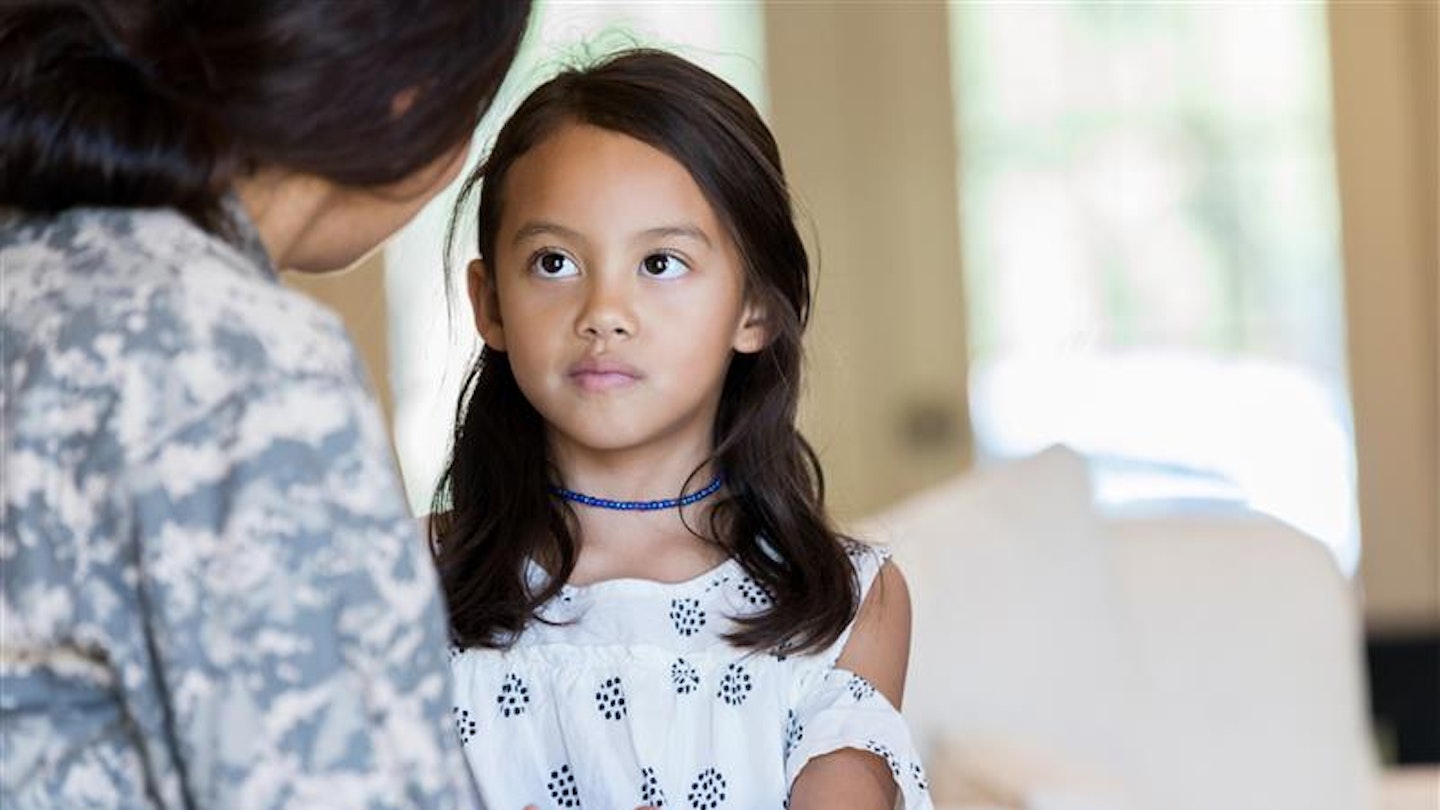What’s the best way to talk about the current situation?
‘The way you communicate with your child during times of uncertainty is crucial. It’s important to be honest because if you tell your child something that is not true, it may harm your relationship and their sense of stability at a time when stability is exactly what they need. Hold a balance between acknowledging that these news events are serious but explain that many countries are working together to sort it out. It will also be important to note that day to day, your child’s life will be the same as it always was. And of course, show empathy for the families that are under threat and vulnerable.’
How do I manage my child’s questions?
‘Always take the chance to answer your child’s questions, if you avoid them or say “you don’t need to worry about that” it is likely they will turn to other sources like classmates or, if they’re a bit older, social media. Any genuine question deserves a considered answer and it’s your chance to help them make sense of the world in a calm, caring and considered setting. Don’t assume you know what’s on their mind. It’s a good tip to start with an open question like “what do you want to know?” (rather than “what are you worried about?”, which is a different question all together). Some children may be worried about their safety, but others might want to know what NATO means.’
Should I bring it up even if they don’t ask any questions?
‘Even very young children pick up atmosphere and emotions even though they don’t have the language to express it. Given it is likely that many people around them will be responding to events by discussing them in some shape or form, it is best to be proactive and offer your child a framework, because a thoughtful explanation will be reassuring and containing. It need not be anxiety provoking or even very lengthy, but it should be a concrete analogy that is relatable to your child (for example, it’s not OK if someone takes something that is not theirs).’
Should I worry if they are worried?
‘If your child is feeling anxious, hold in mind that it is an understandable reaction to extraordinary events. It doesn’t mean that they have a mental health disorder. Remember that everyone experiences difficult emotions, like anxiety, from time to time and understanding that it is normal to feel all sorts of emotions, is an important part of wellbeing.’
What should I do if they are worried?
‘If you find your child has many questions and worries that are dominating their thoughts, agree a regular check-in time and ask them to note down, draw or audio record their worries or questions, and save them up so you can sort through them together, at your check-in. Come back to any remaining questions at the next check-in time and so on. This has two benefits, first recording thoughts “outside your head” often gives a helpful sense of perspective. Second, even very young children may start to notice a difference between the intensity of feelings “in the moment”, and the intensity decreasing after worries are “parked” for a while. Both skills need regular practice, and they won’t develop fully until late adolescence, but they are incredible wellbeing habits that will serve them well for a lifetime.
‘It’s important that you give your child the sense that the world is still a safe place and one of the most effective ways of doing that is by emitting a sense of calm in your words, your tone of voice, and actions. Keep family routines in place, so for example, if your child says they are too worried to go to school, if you respond by keeping them at home you might inadvertently give them the message that they are safer at home. If you are supporting a child who is anxious, it a useful strategy to follow the old saying…Keep calm and carry on.'
READ MORE: This Is What You Can Do To Help People In Ukraine Right Now
Dr Jane Gilmour is a Consultant Clinical Psychologist at Great Ormond Street Hospital and co-author of How to Have Incredible Conversations with Your Child and The Incredible Teenage Brain****
